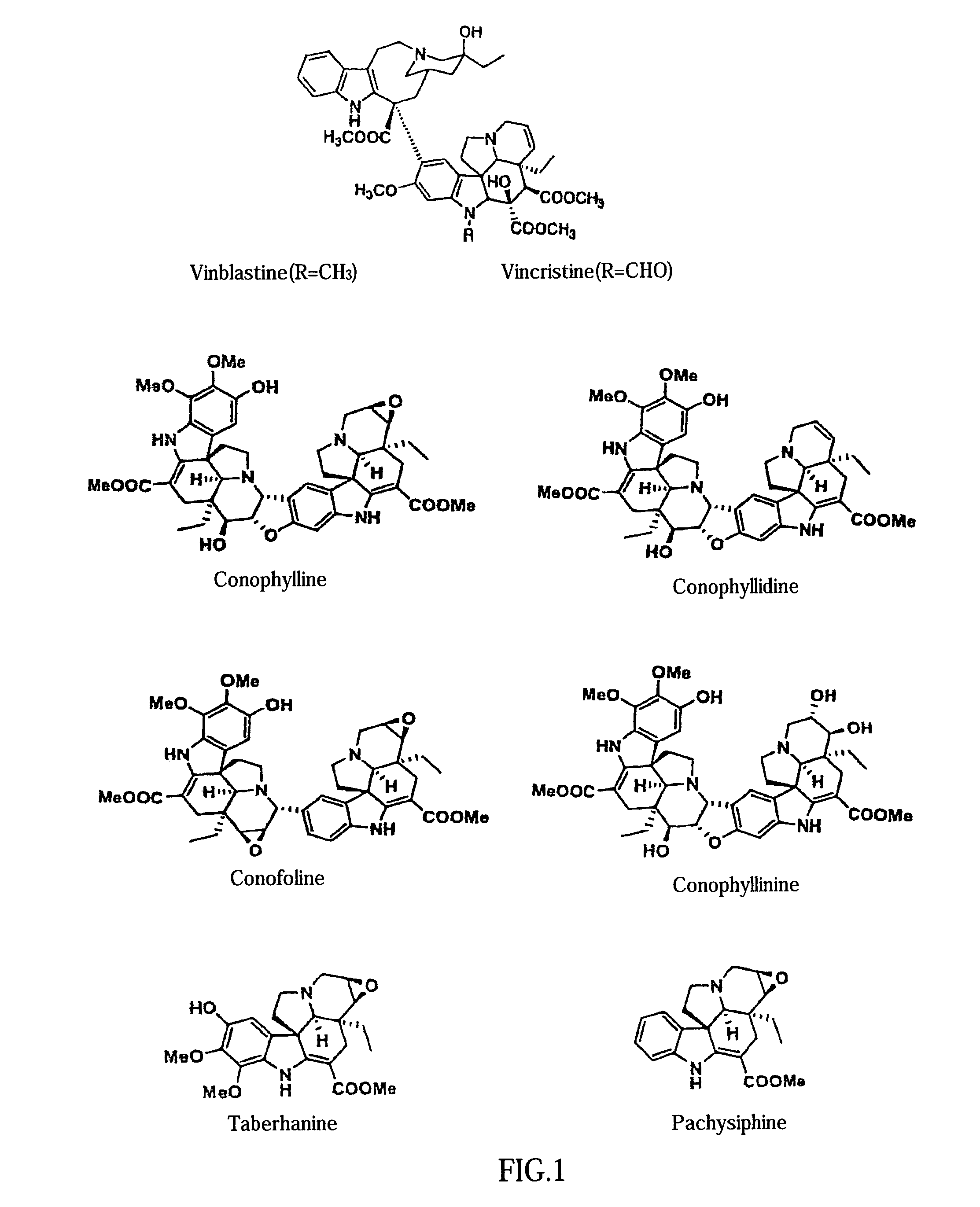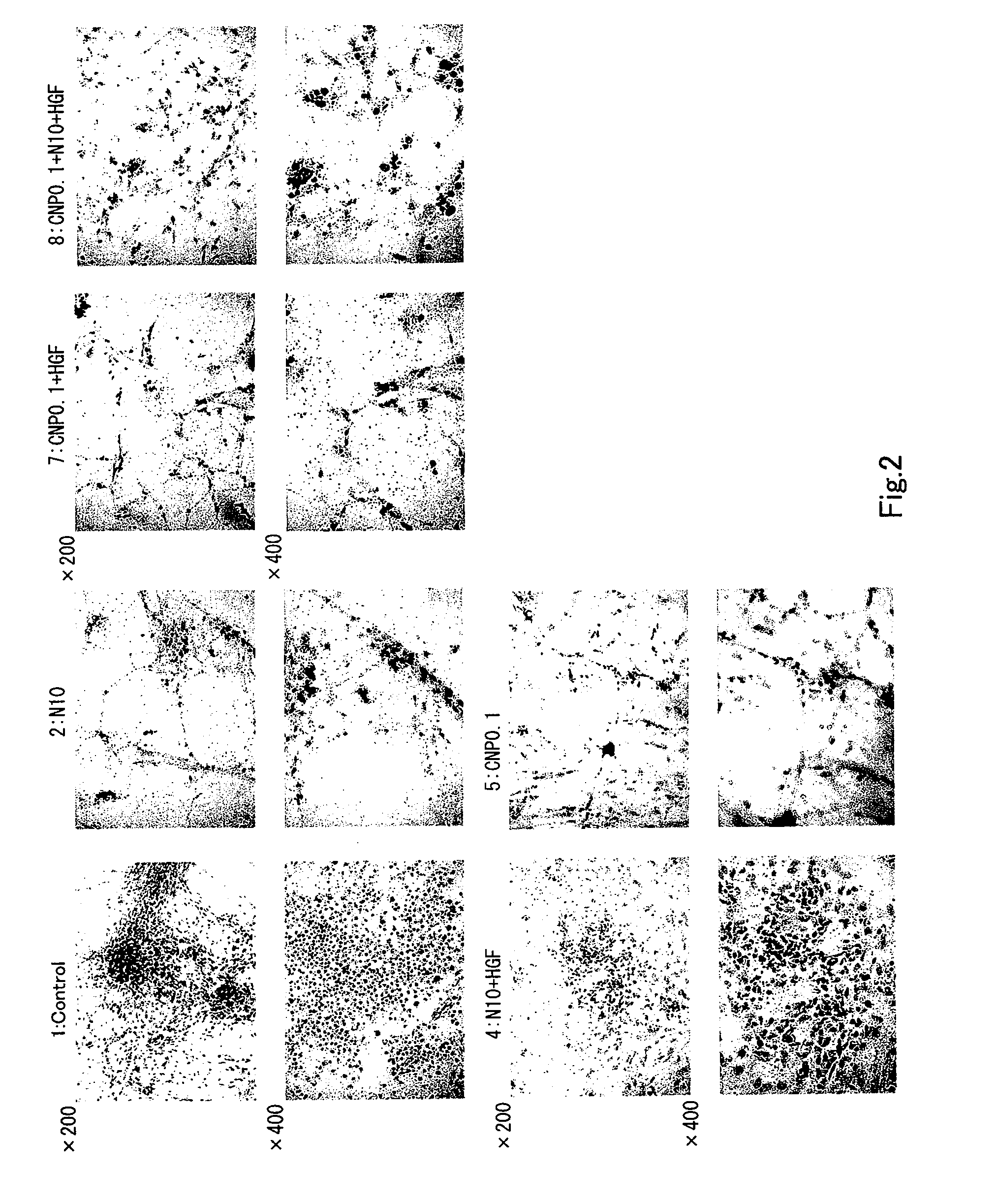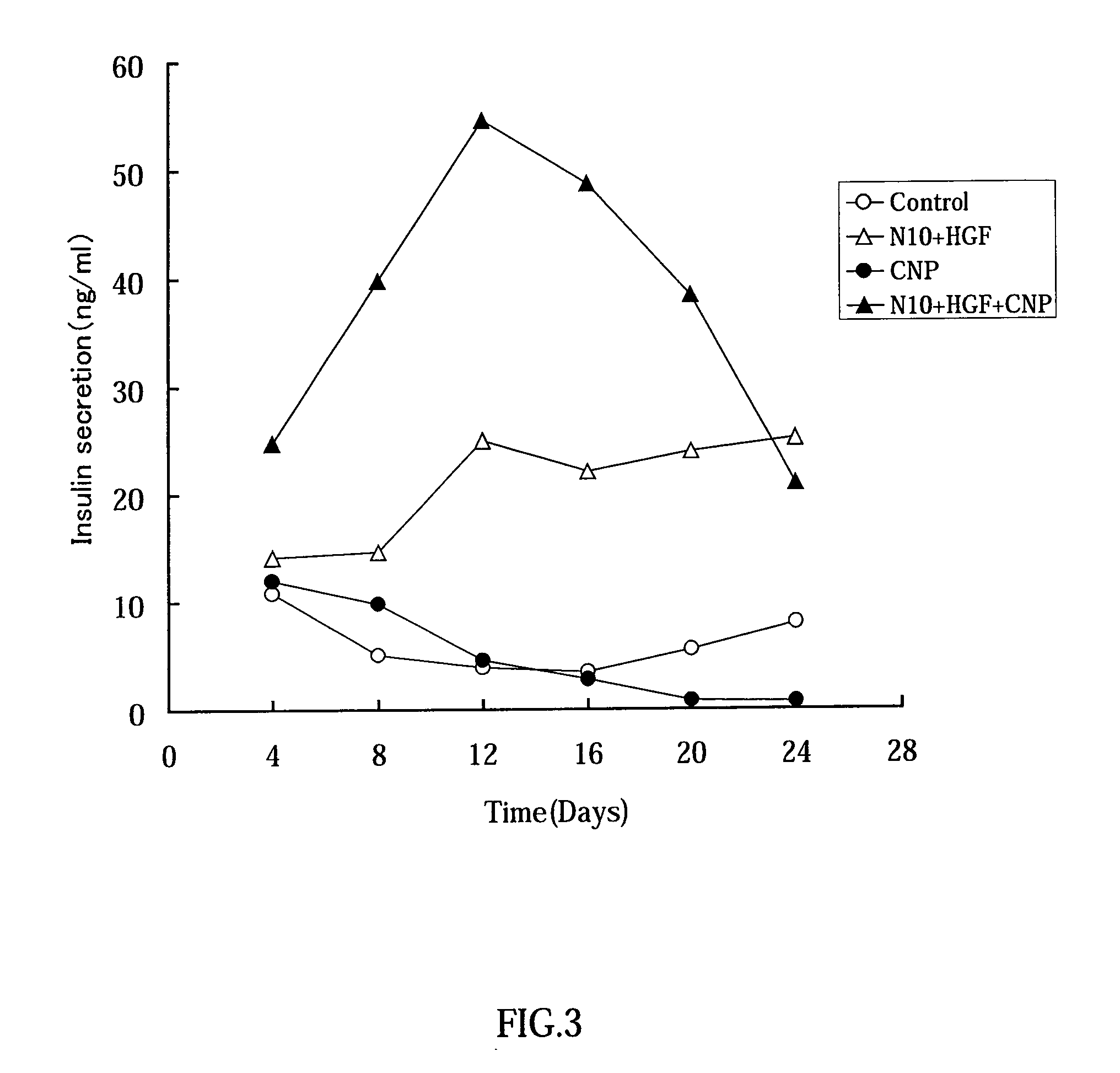Use of vinca alkaloids and salts thereof
a technology of vinca alkaloids and salts, which is applied in the field of use of vinca alkaloids and their salts, can solve the problems of increased blood glucose concentration, increased neuropathy, laborious patients' four injections a day, etc., and achieves the effect of increasing insulin production and increasing insulin-producing and -secreting abilities
- Summary
- Abstract
- Description
- Claims
- Application Information
AI Technical Summary
Benefits of technology
Problems solved by technology
Method used
Image
Examples
example 1
Production Example 1
Preparation of Conophylline
[0054]Conophylline was isolated and purified from leaves of Ervatamia microphylla, an Apocynaceae family plant, (harvested in Khon Khen, Thailand) in the following manner.
[0055]Active substance was extracted from about 4 kg of Ervatamia micorophylla leaves with 100 L of chloroform to afford about 130 g of oily substance. This oily substance was chromatographed on a silica gel column (purification was performed by a total of 5 rounds of column chromatography using about 500 g of silica gel), eluting sequentially with chloroform:methanol (40:1 and 20:1). Subsequently, using morphological changes of K-ras-NRK cells as an activity marker, the fractions exhibiting this biological activity were recovered. The crude purified product obtained (about 40 g) was chromatographed on a silica gel column with n-hexane:ethyl acetate (1:2 and 0:1) (using about 500 g of silica gel; purchased from Merck Co.) to afford 1.5 g of active fractions. The active...
example 2
Experiment Examples I and II
1. Methods
[0056]Neonatal pigs within 72 hours of birth were obtained from the (Takayama) pig farm. The whole pancreas (ventral and dorsal pancreas) was removed under general anesthesia immediately after animals were brought to the operating room. After elimination of connective tissue covering the removed pancreas and blood adhering to it, the pancreas was transferred to a 10 ml beaker and dissected into small pieces with ophthalmic scissors. The dissected pieces were transferred to a 100 ml conical flask, to which 50 to 60 ml of phosphate buffered saline (PBS) was added. After a 3 min rotation at 110 rpm on a low speed stirrer, the mixture was allowed to stand still and the supernatant was discarded. Then, 40 mL of phosphate buffered saline containing Liberase PI (Roche) at a concentration of 2.5 mg / ml was added. After an 8 min rotation at 110 rpm on a low speed stirrer, the mixture was allowed to stand still and the supernatant containing the cells was ...
example 3
Comparative Example 1
Effect in which Conophylline Induces Differentiation of Rat Pancreatic Acinar Carcinoma AR42 J-B13 Cells into Insulin-Producing Cells
1. Methods
Cell Culture
[0072]DMEM was sterilized by filtration after its pH was adjusted to 7.4 in the presence of 20 mM HEPES-NaOH. AR42J-B13 cells (endowed by Dr. Itaru Kojima, Institute for Cellular and Molecular Regulation, Gunma University) a highly sensitive subclone of AR42J, were cultured at 37° C. in a 5% CO2 incubator with 20 ml of culture medium DMEM supplemented with 100 mg / l kanamycin, 0.6 g / l glutamine, 100 unit / ml penicillin G, 5 mM NaHCO3, and 10% FBS. To prevent transformation due to a high density of the cells and to retain differentiation ability of the cells, the cells were transferred every 2 to 3 days to maintain 2.5% to 5% of confluency. The cell transfer was performed as follows: After the medium was removed, the cells were washed twice in PBS− (Ca2+, Mg2+-free PBS; 8 g / l, NaCl, 0.2 g / l KCl, 0.916 g / Na2HPO4, ...
PUM
 Login to View More
Login to View More Abstract
Description
Claims
Application Information
 Login to View More
Login to View More - R&D
- Intellectual Property
- Life Sciences
- Materials
- Tech Scout
- Unparalleled Data Quality
- Higher Quality Content
- 60% Fewer Hallucinations
Browse by: Latest US Patents, China's latest patents, Technical Efficacy Thesaurus, Application Domain, Technology Topic, Popular Technical Reports.
© 2025 PatSnap. All rights reserved.Legal|Privacy policy|Modern Slavery Act Transparency Statement|Sitemap|About US| Contact US: help@patsnap.com



